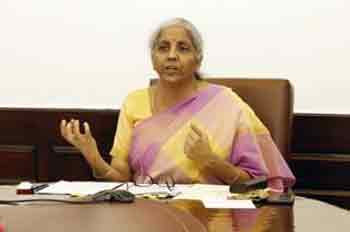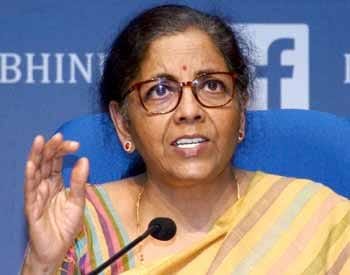The anticipation surrounding the Indian budget session is palpable, and for good reason. Union Finance Minister Nirmala Sitharaman is set to unveil the much-awaited budget on July 23, a significant event in India’s economic calendar. This announcement comes as part of the broader budget session, which will commence on July 22 and conclude on August 12. The session’s dates were shared by Union Minister Kiren Rijiju through a post on X, formerly known as Twitter. The recommendation by the central government received the formal approval of President Draupadi Murmu, marking a crucial step in the legislative process.
A Historic Presentation by Finance Minister Nirmala Sitharaman
This budget presentation is particularly noteworthy as it marks the seventh consecutive budget delivered by Finance Minister Nirmala Sitharaman. Her tenure has been marked by a series of significant economic policies and reforms, making each budget session highly anticipated by both the public and industry experts. The upcoming budget is expected to reflect the vision and mission of the Modi 3.0 government towards a developed India.
Key Expectations from the Budget
Focus on Economic Growth and Development
One of the core expectations from this budget is a strong emphasis on economic growth and development. The Modi government has consistently focused on policies aimed at boosting India’s economic stature on the global stage. This budget is expected to further this agenda with strategic allocations and policy measures.
Infrastructure and Industrial Boost
A significant portion of the budget is anticipated to be dedicated to infrastructure development. This includes the enhancement of transportation networks, urban development, and rural infrastructure. The industrial sector is also expected to receive substantial support to stimulate growth, innovation, and job creation.
Agricultural Reforms
Given the pivotal role of agriculture in the Indian economy, the budget is likely to include reforms aimed at improving agricultural productivity and farmer welfare. This could involve increased funding for irrigation projects, subsidies for fertilizers, and better market access for farmers.
Healthcare and Education
In light of the ongoing global health challenges, the budget is expected to prioritize healthcare spending. This includes strengthening the healthcare infrastructure, funding for medical research, and increasing the availability of essential medicines. Similarly, the education sector is likely to see increased investment to improve the quality of education and expand access to all segments of society.
Digital India Initiative
The Digital India initiative is another area where substantial funding is expected. This initiative aims to transform India into a digitally empowered society and knowledge economy. The budget is likely to allocate resources for expanding digital infrastructure, promoting digital literacy, and supporting tech-driven startups.
Policy Reforms and Fiscal Measures
Tax Reforms
Taxation policies are always a critical component of the budget. This year, significant tax reforms are anticipated, aimed at simplifying the tax system, increasing compliance, and broadening the tax base. These reforms are expected to make the tax regime more transparent and taxpayer-friendly.
Fiscal Deficit Management
Managing the fiscal deficit is a delicate balance that the Finance Minister must achieve. The budget will likely outline measures to control the fiscal deficit while ensuring that there is adequate spending on critical sectors to stimulate economic growth.
Incentives for Foreign Investment
To attract more foreign direct investment (FDI), the budget may introduce incentives and ease regulatory norms. This would not only boost the economic growth but also enhance India’s position as a preferred investment destination globally.
Social Welfare and Employment Generation
Social Security Schemes
Social welfare schemes are expected to receive significant attention in the budget. This includes schemes aimed at improving the living standards of the economically weaker sections of society, enhancing social security nets, and ensuring access to essential services.
Employment Generation Programs
With unemployment being a major concern, the budget is likely to focus on employment generation programs. These programs will aim to create job opportunities across various sectors, particularly in rural areas, to address the issue of underemployment and unemployment.
Sector-Specific Allocations
Energy and Environment
The budget is also expected to prioritize the energy sector, with investments in renewable energy projects and measures to improve energy efficiency. Environmental sustainability will be a key focus, with allocations for projects aimed at reducing pollution and promoting sustainable practices.
Defence and Security
Given the geopolitical landscape, the defence sector is expected to receive substantial allocations to enhance India’s defence capabilities and ensure national security. This includes funding for modernizing the armed forces and acquiring advanced defence technology.
A Forward-Looking Budget
As Finance Minister Nirmala Sitharaman prepares to present the budget on July 23, the nation watches with keen interest. This budget is not just a financial statement but a roadmap for India’s future. It is expected to reflect the government’s commitment to economic growth, social welfare, and national security. With a focus on infrastructure, digital transformation, healthcare, and education, the budget aims to lay a strong foundation for a developed India.
The upcoming budget session promises to be a landmark event, setting the stage for India’s economic trajectory in the coming years. The detailed allocations and policy measures will be scrutinized and debated, but the overarching goal remains clear: to propel India towards a future of prosperity and development.













